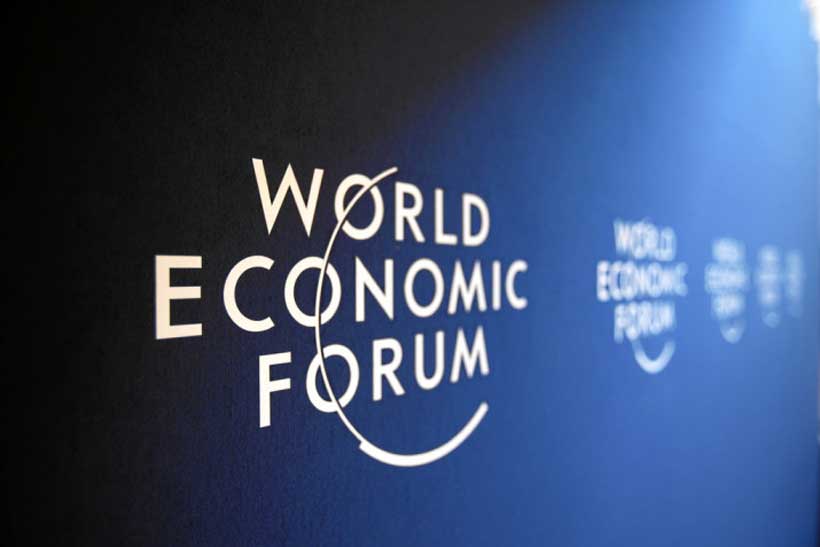The World Economic Forum Annual Meeting 2020, taking place on 21-24 January in Davos-Klosters, Switzerland, will focus on establishing stakeholder capitalism as a way of addressing the world’s greatest challenges, from societal divisions created by income inequality and political polarization to the climate crisis we face today.
Underpinning the meeting will be the Davos Manifesto 2020. This document builds on the original Davos Manifesto of 1973, which set out for the first time the stakeholder concept that businesses should serve the interests of all society rather than simply their shareholders. The Davos Manifesto 2020 provides a vision for stakeholder capitalism that touches on a range of important issues of our time, including fair taxation, zero tolerance for corruption, executive pay and respect for human rights.
“Business has now to fully embrace stakeholder capitalism, which means not only maximizing profits, but use their capabilities and resources in cooperation with governments and civil society to address the key issues of this decade. They have to actively contribute to a more cohesive and sustainable world,” said Klaus Schwab, Founder and Executive Chairman of the World Economic Forum.
Building on the Manifesto 2020, this year’s programme focuses on achieving maximum impact on the Forum’s platform for public-private cooperation across six core areas of activity: Ecology, Economy, Society, Industry, Technology and Geopolitics. More than 160 individual initiatives, each capable of delivering system-wide transformation, are active on the Forum platform. Significant advances in a number of these, especially in the fields of responsible business, the environment and social mobility, are expected to be confirmed during the meeting.
Among the initiatives to be launched at the Annual Meeting is one that aims to plant 1 trillion trees over the next decade and to equip 1 billion people with the necessary skills in the age of the Fourth Industrial Revolution. More details on this and the others will be disclosed at the meeting. To learn more about the Forum’s Lighthouse initiatives, click here.
Nearly 3,000 leaders will participate in this year’s Annual Meeting. Top political leaders taking part include:
Donald Trump, President of the United States of America; Han Zheng, Vice-Premier of the People’s Republic of China; Angela Merkel, Federal Chancellor of Germany; Giuseppe Conte, Prime Minister of Italy; H.R.H. The Prince of Wales; Ursula von der Leyen, President of the European Commission; Pedro Sanchez, Prime Minister of Spain; Simonetta Sommaruga, President of the Swiss Confederation; Mohammad Ashraf Ghani, President of the Islamic Republic of Afghanistan; Sebastian Kurz, Federal Chancellor of Austria; Ivan Duque, President of Colombia; Felix Tshisekedi, President of the Democratic Republic of the Congo; Lenin Moreno Garcés, President of Ecuador; Sanna Marin, Prime Minister of Finland; Nana Addo Dankwa Akufo-Addo, President of the Republic of Ghana; Kyriakos Mitsotakis, Prime Minister of Greece; Barham Salih, President of Iraq; Leo Varadkar, Taoiseach of Ireland; Omar Al Razzaz, Prime Minister of Jordan; Khaltmaagiin Battulga, President of Mongolia; Mark Rutte, Prime Minister of the Netherlands; Erna Solberg, Prime Minister of Norway; Imran Khan, Prime Minister of Pakistan; Mohammad Ibrahim Shtayyeh, Prime Minister of the Palestinian National Authority; Andrzej Duda, President of Poland; Maxim Oreshkin, Minister of Economic Development of the Russian Federation; Macky Sall, President of Senegal; Lee Hsien Loong, Prime Minister of Singapore; Kais Saied, President of Tunisia; Volodymyr Zelenskyy, President of Ukraine.
Leaders from international organizations include:
Antonio Guterres, Secretary-General, United Nations; Kristalina Georgieva, Managing Director, International Monetary Fund; Roberto Azevêdo, Director-General, World Trade Organization (WTO); Mohammad Sanusi Barkindo, Secretary-General, Organization of the Petroleum Exporting Countries (OPEC); David Beasley, Executive Director, United Nations World Food Programme (WFP); Filippo Grandi, United Nations High Commissioner for Refugees; Liu Fang, Secretary-General, International Civil Aviation Organization (ICAO; Tedros Adhanom Ghebreyesus, Director-General, World Health Organization (WHO); Angel Gurría, Secretary-General, Organisation for Economic Co-operation and Development (OECD); Christine Lagarde, President, European Central Bank; Peter Maurer, President, International Committee of the Red Cross (ICRC); Luis Alberto Moreno, President, Inter-American Development Bank; Guy Ryder, Director-General, International Labour Organization (ILO); Jürgen Stock, Secretary-General, International Criminal Police Organization (INTERPOL); and Jens Stoltenberg, Secretary-General, North Atlantic Treaty Organization (NATO).
More than 1,680 leaders from the private sector will participate in the Annual Meeting this year, including Members and Partners of the World Economic Forum.
Leaders from civil society taking part in the meeting include:
Sharan Burrow, General Secretary, International Trade Union Confederation (ITUC); Luca Visentini, General Secretary, European Trade Union Confederation (ETUC); Micah White, Co-Creator, Occupy Wall Street; Kenneth Roth, Executive Director, Human Rights Watch; Jennifer Morgan, Executive Director, Greenpeace International; David Miliband, President, International Rescue Committee; Seth F. Berkley, Chief Executive Officer, Gavi, the Vaccine Alliance; Hindou Oumarou Ibrahim, President, Association for Indigenous Women and Peoples of Chad (AFPAT); and His All-Holiness Patriarch Bartholomew, Archbishop of Constantinople-New Rome and Ecumenical Patriarch.
This year over 120 of our civic-minded young leaders will join as members of the our Global Shapers, Young Global Leaders, and Social Entrepreneur communities. We will also welcome 10 leaders under the age of 20 representing the viewpoints of younger generations. For more information on these young teenage changemakers, click here.
Adding a new dimension this year is the Arts and Culture Festival. Running alongside the Annual Meeting, the Festival will feature a number of sessions and immersive art installations, including those featuring the participation of the winners of the 26th Annual Crystal Awards and our Cultural Leaders.
The 50th Annual Meeting will also be climate-neutral for the fourth consecutive year. New initiatives to boost resource efficiency and reduce emissions will build on the Forum’s 2018 ISO 20121 certification for sustainable event management. Learn more about our strategy and efforts here.


